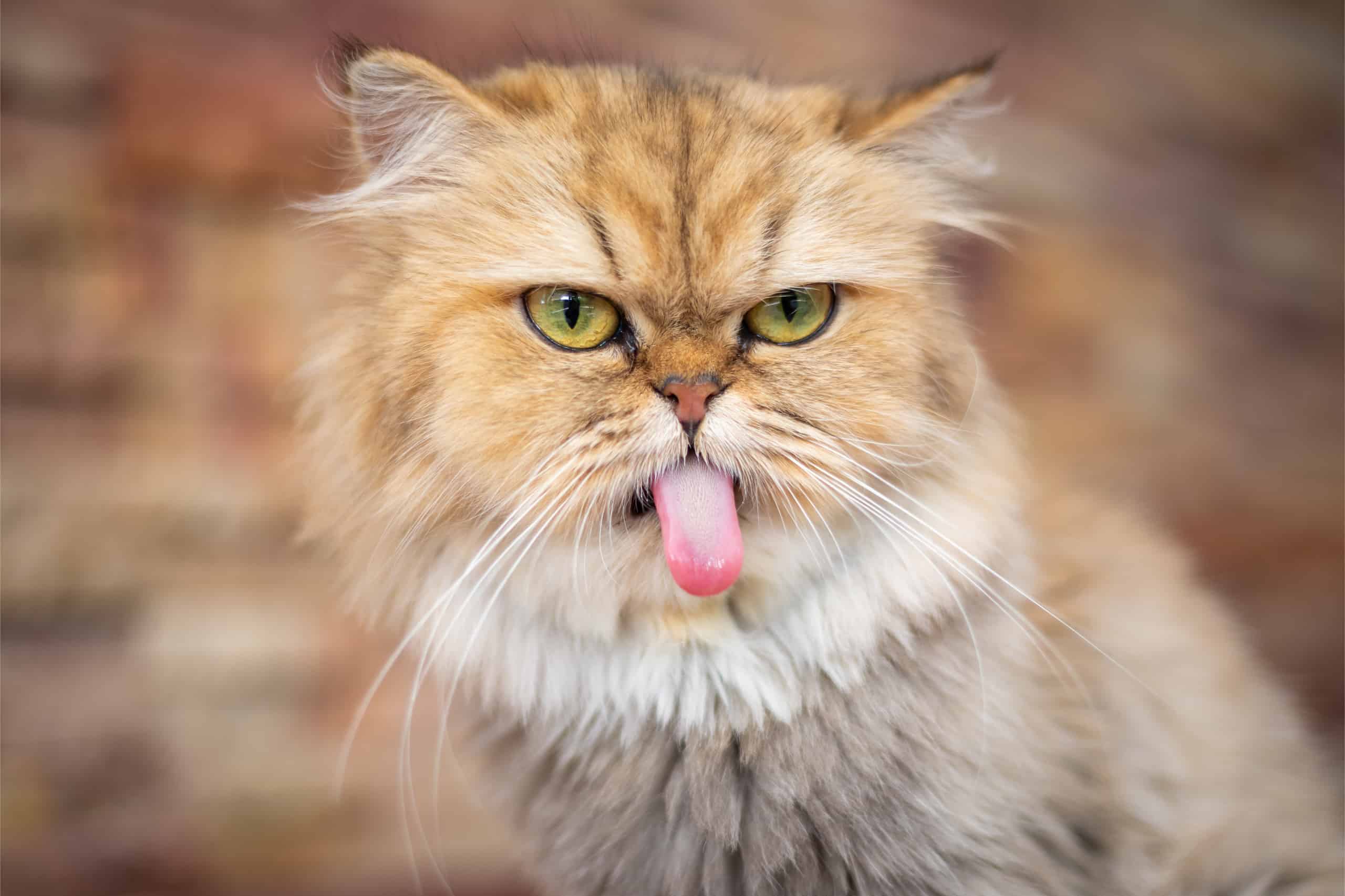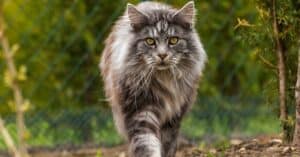Cats (Felis catus) have a number of physical attributes that help them survive. Their sharp claws help them capture their prey. Acute hearing allows cats to hear practically everything going on around them. Because they have soft paw pads, they can stalk prey in the wild and walk stealthily through the house. But what about their tongues? When a cat licks you, their tongue feels rough and dry, like an emery board. Why is that, and how does having a rough tongue help your cat do things?
Why Are Cat Tongues Rough?
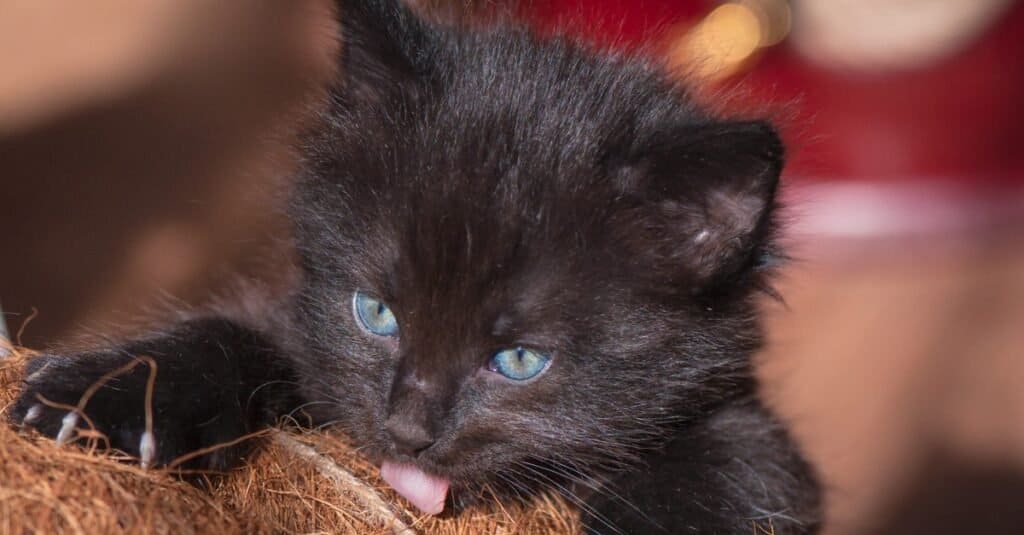
Cats have fewer than 500 taste buds on their tongues.
©Lyudmila Lucienne/Shutterstock.com
The surface of a cat’s tongue is covered with tiny, hard barbs called filiform papillae. These barb-like protrusions are made of keratin, the same substance that makes up hair and nails. Research has shown that the papillae are hollow and shaped like a scoop. The papillae create a noticeably coarse texture on the cat’s tongue.
While the sensation of being licked by a cat is slightly uncomfortable for some people, cats use their tongues in some amazing ways.
Why Do Cats Lick Themselves?
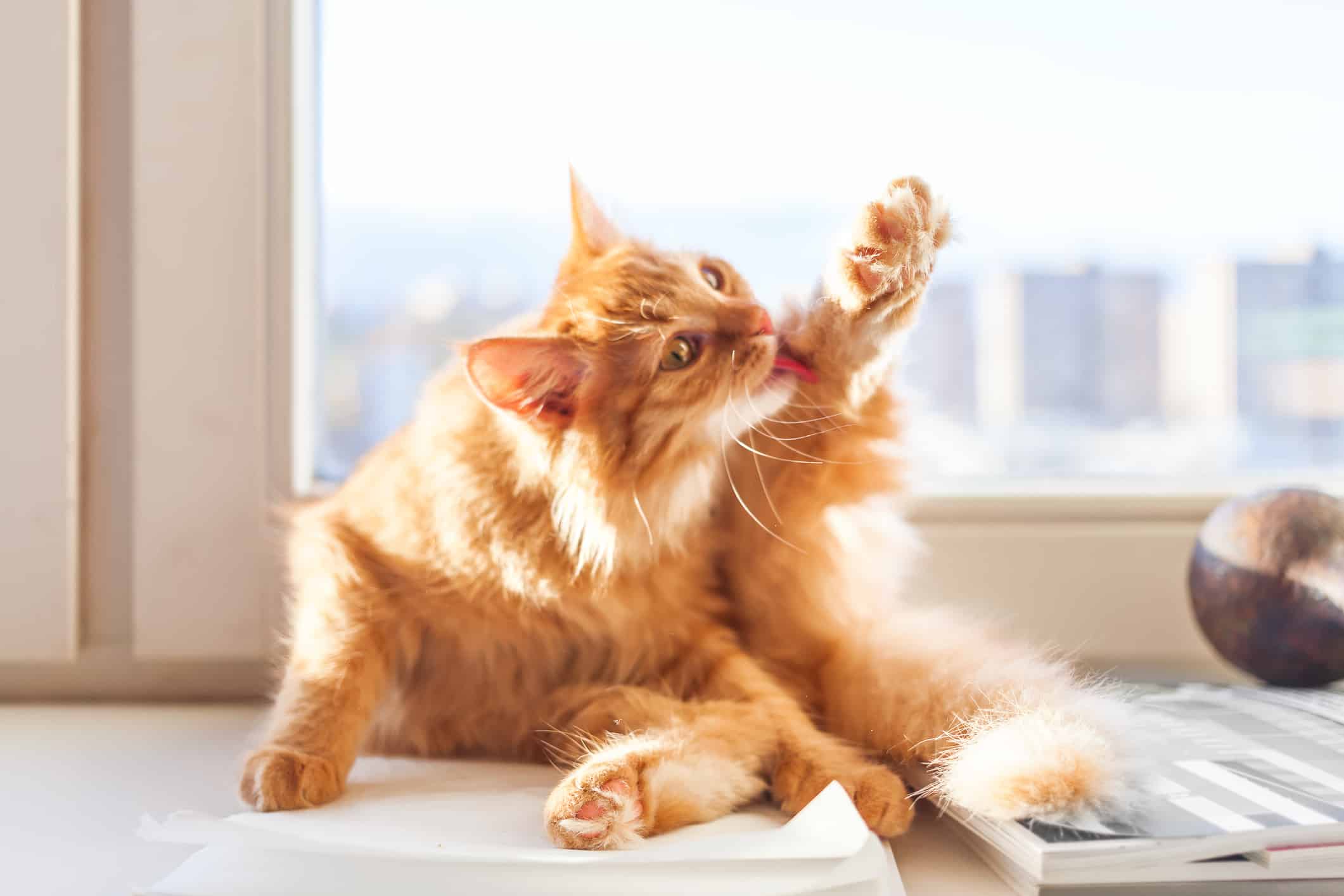
On average, cats spend 30-50 percent of their waking hours grooming themselves.
©Konstantin Aksenov/iStock via Getty Images
Cats are fastidious creatures that spend much of their time cleaning themselves. Their tongue’s rough texture helps with this activity. The papillae function as a sort of hair brush, helping smooth out their fur. As they run their tongue over their coat, saliva comes out of the hollow papillae. Within the cat’s saliva are enzymes, such as nitrate and lactoferrin, which serve as both natural cleaning and anti-bacterial agents. Because cats’ tongues are so rough, the saliva is transferred into the fur and down to the cat’s skin, keeping the cat nice and clean. One exception to this is the Persian cat, whose fur is too thick and shaggy for it to thoroughly groom itself.
How Do Cats Drink?
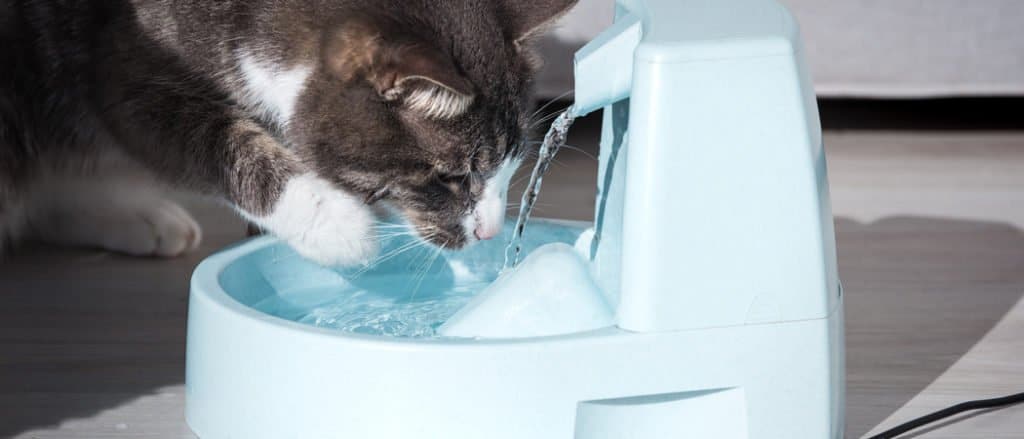
Cats snatch water from mid-air while drinking.
©Creative Cat Studio/Shutterstock.com
Unlike dogs, whose tongues form a bowl shape to capture water for drinking, cats barely touch the water’s surface. That flicking movement makes the water splash, forming a column. When the water flies into the air, cats catch it in their mouths just before it begins to fall back down. When water enters a cat’s mouth, the hollow papillae on its tongue capture the liquid. Once the cat has enough water in its mouth for a decent drink, they swallow it.
How Does a Cat’s Tongue Help It Eat?
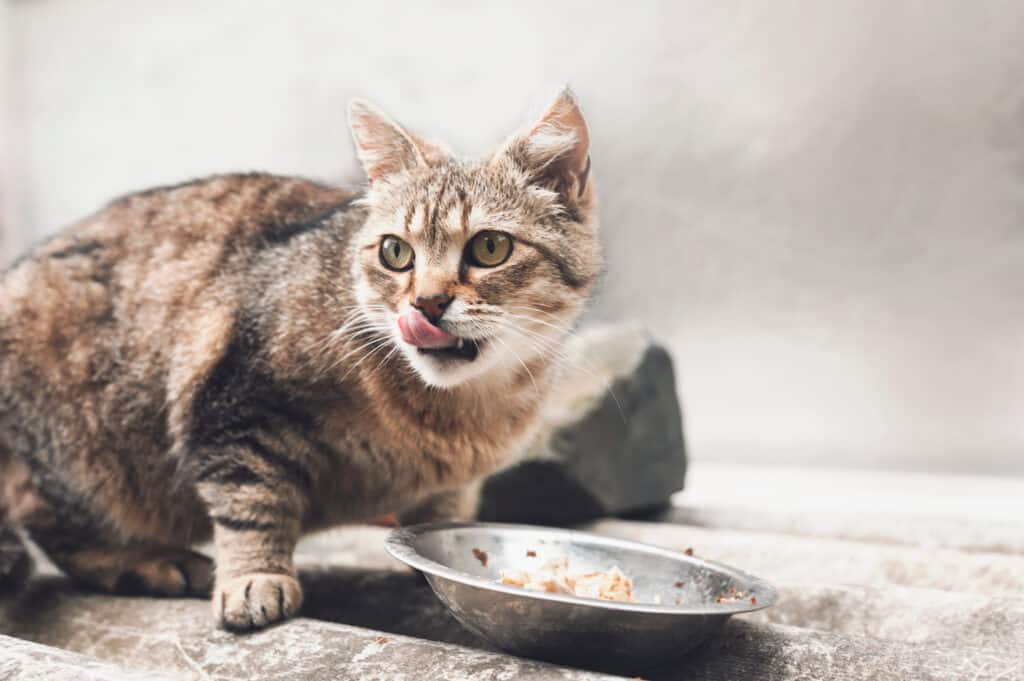
In the wild or in your home, some cats don’t like to leave behind any scraps!
©Lia Kos/Shutterstock.com
Cats are natural and instinctive predators. Whether it’s a housecat chasing a toy mouse or a lion (Panthera leo) taking down an antelope, cats are born hunters. As carnivores, cats use their tongues to make sure they receive enough nutrition. In the wild, big cats use their rough tongues to lick clean the bones of their prey. The papillae function as miniature scrapers, ensuring that the cat gets every last possible shred of meat. That behavior exists in housecats, too! Some hungry cats will lick every speck of food from their dish, taking care to eat all of it.
Why Do Cats Lick People?
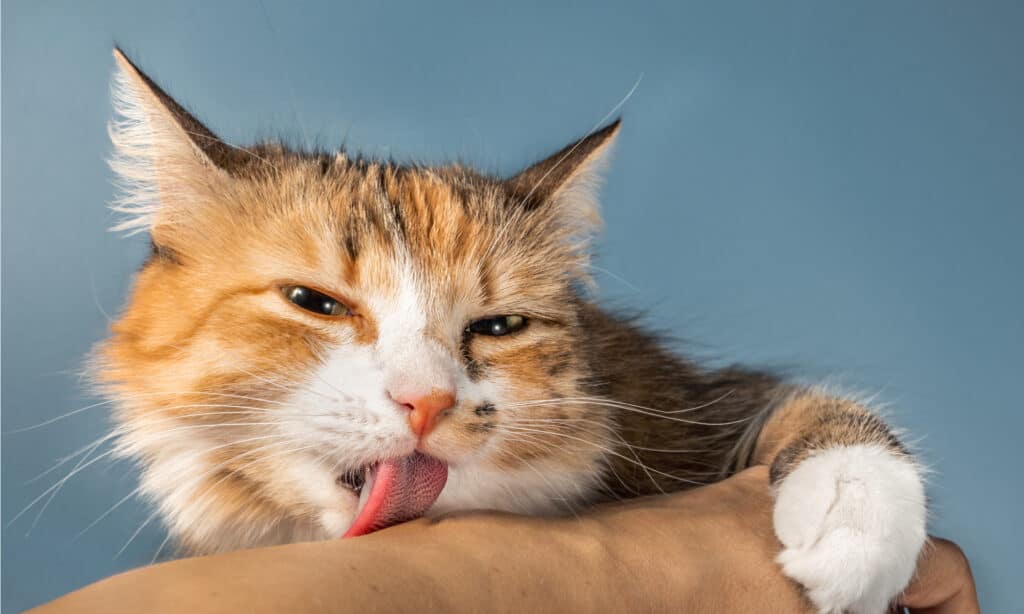
When cats lick people, it often means they feel safe in the presence of that human.
©sophiecat/Shutterstock.com
What you’ve always suspected is true: cats often lick you because they like you. When a cat decides to grace you with kisses, they are marking you with their scent! Areas on a cat’s face and chest emit pheromones which your cat transfers to your skin when they lick you. In their own way, the cat is showing that you are worthy of trust and attention. However, there is a chance that the cat enjoys the taste of your lotion or perfume. Those aren’t good for your cat’s digestive system. Don’t let your cat lick areas where perfume or lotion have been applied.
Thank you for reading! Have some feedback for us? Contact the AZ Animals editorial team.

